Introduction
The coaching industry is booming — yet underneath the hype, it often feels like a frontier town with no sheriff.
No universal standards.
No shared definitions.
No baseline qualification everyone agrees on.
Just noise, marketing tactics, and widely inconsistent skill levels.
But this isn’t the first time I’ve seen an industry grow faster than its structure.
Flashback to the 1990s…
From Building PCs to Understanding Coaching Chaos
In the ’90s, I ran a business assembling and repairing computers. Back then, the PC world was exactly what coaching feels like today:
Anyone with curiosity and a screwdriver could call themselves a “computer builder.”
People sold systems from driveways, garages, and spare bedrooms.
Quality ranged from “surprisingly good” to “this won’t even turn on.”
There were no standards, no oversight, no guarantees.
Consumers had no idea who actually knew what they were doing.
Yet even without marketing, customers came to me — because they wanted someone they could trust.
That’s when I learned a truth that applies perfectly to coaching today:
When an industry lacks structure, people buy confidence, not credentials.
And today, coaching is reliving that same growing pain.
The Coaching Industry’s Three Categories
After years of watching, hiring, mentoring, and training coaches, I’ve noticed the industry sorts itself into three groups.
1. Well-Trained Coaches
These are professionals who commit to real training:
9+ months of structured programs
Live practice hours
Mentoring and supervision
Skill assessments and ethical guidelines
They’ve been evaluated before charging clients.
2. Under-Trained or Self-Proclaimed Coaches
This is where confusion starts.
Some take a two-week online program and call it certification.
Some switch titles (“consultant,” “mentor,” “coach”) without understanding the difference.
Some genuinely want to help but lack the tools, frameworks, or self-awareness to do it safely.
Most mean well — but don’t yet know what they don’t know.
3. Well-Trained and Accredited Coaches
These coaches go through rigorous training and independent accreditation (ICF, etc.), which includes:
external evaluation
ethics requirements
supervision
continuing education
Accreditation doesn’t guarantee brilliance — but it drastically reduces the chances of harm or inconsistency.
Important Reality
Certification ≠ automatically great results.
Lack of certification ≠ automatically poor coach.
But accreditation shifts the odds heavily in favour of the client.
The Real Wild West: Coaching Marketing
If skill differences create confusion, marketing multiplies it.
I’ve sat through more coaching marketing workshops than I’d like to admit. Most mean well, but “advice” is often misleading or downright harmful.
Here are the statements that worry me most:
“If you’re one step ahead, you can coach them.”
Life experience isn’t the same as professional coaching skill.
“Sell the transformation — promise the outcome.”
No coach can predict:
timeline
emotional readiness
depth of work
unexpected obstacles
A good coach checks if someone is prepared — not just motivated.
“Lock clients into 6–12 month contracts.”
If money is what keeps someone in the relationship, trust breaks instantly.
“The more they pay, the more they value it.”
False.
I often offer free sessions — and those clients progress just as much.
What matters is:
psychological safety
commitment
honesty
partnership
Not price tags.
“If the client doesn’t succeed, it’s their fault.”
Dangerous mindset.
Coaching is co-creation.
Blame destroys trust — and misrepresents the whole industry.
What 30 Years Across Two Worlds Has Taught Me
In tech, the problem was obvious — but so was the solution.
In coaching, the stakes are higher.
You’re working with people’s minds, confidence, identity, and potential — not computer parts.
That’s why I don’t believe in pressure tactics.
I don’t believe in selling dreams.
And I don’t believe transformation requires “pain point” manipulation.
Instead, I believe in creating real value — frameworks, tools, insights, and clarity that help people think more powerfully, even if they never work with me.
Because in both industries — PCs or coaching — one truth stays constant:
Trust is the real product.
Where Coaching Goes Next
Just like the early tech industry, coaching is slowly evolving:
more accreditation
more structure
clearer standards
more consumer awareness
We’re still early — but progress is happening.
While the field matures, here’s what matters most:
If you’re choosing a coach, ask:
Do they offer sample sessions?
Are they accredited?
What are their ethics and boundaries?
What’s their process when things go wrong?
How do they measure progress?
Does it feel safe and grounded — not salesy?
If you’re a coach:
Exceed expectations.
Invest in training.
Build actual skill.
Stay curious.
Serve, don’t sell.
Because in every industry — tech, coaching, or anything else —
Belief, integrity, and real partnership are what create lasting transformation.
If you want to understand whether coaching is the right fit for you, let’s talk.
I’ll give you clarity, not a pitch.

